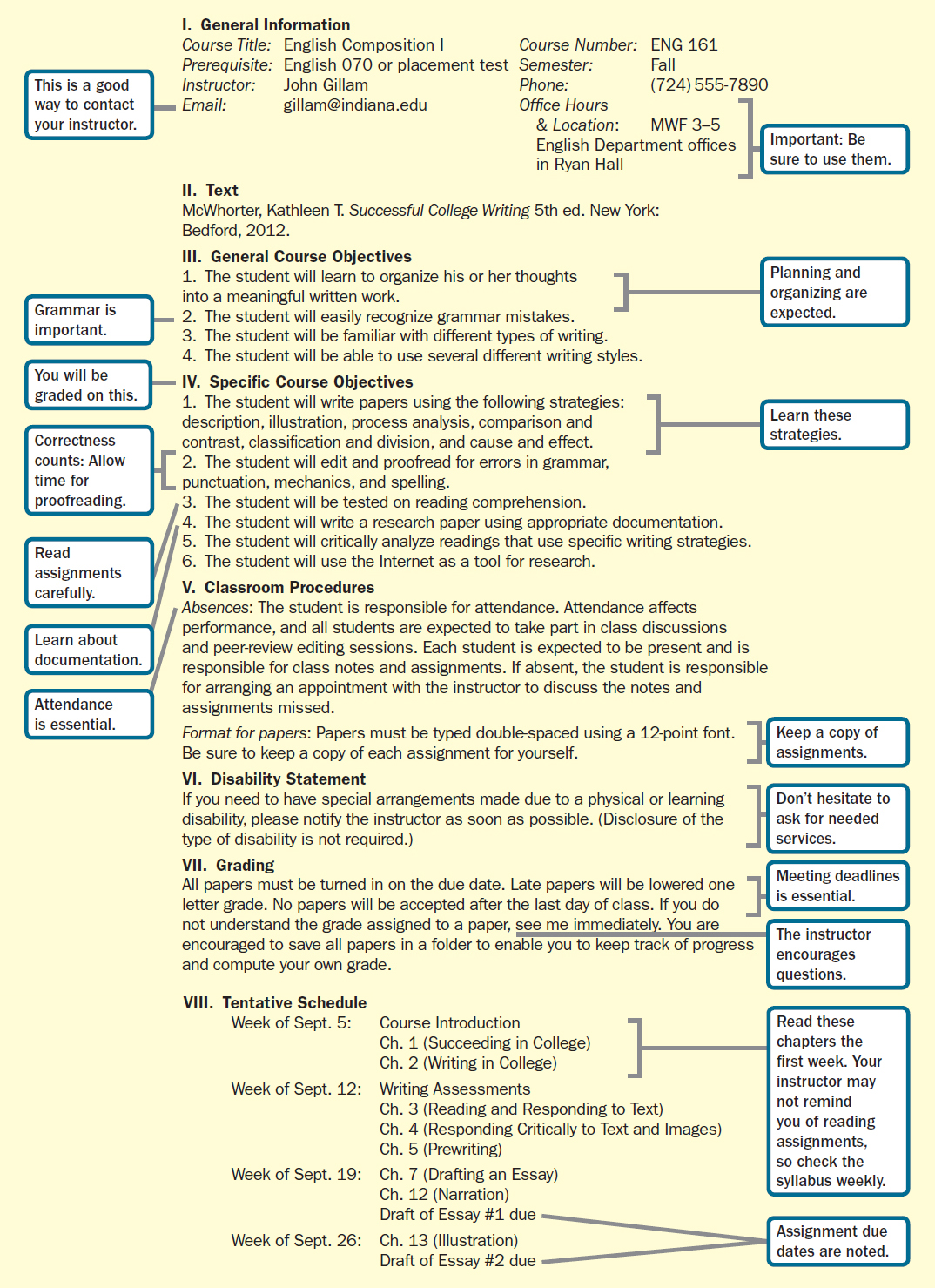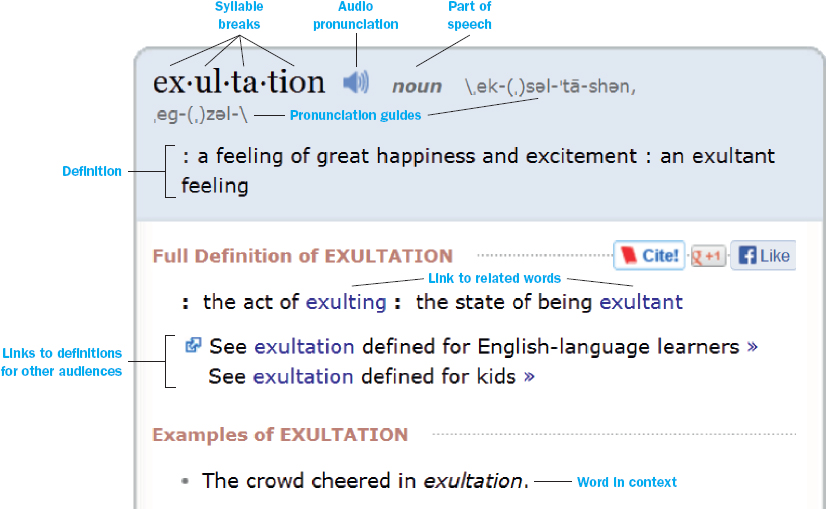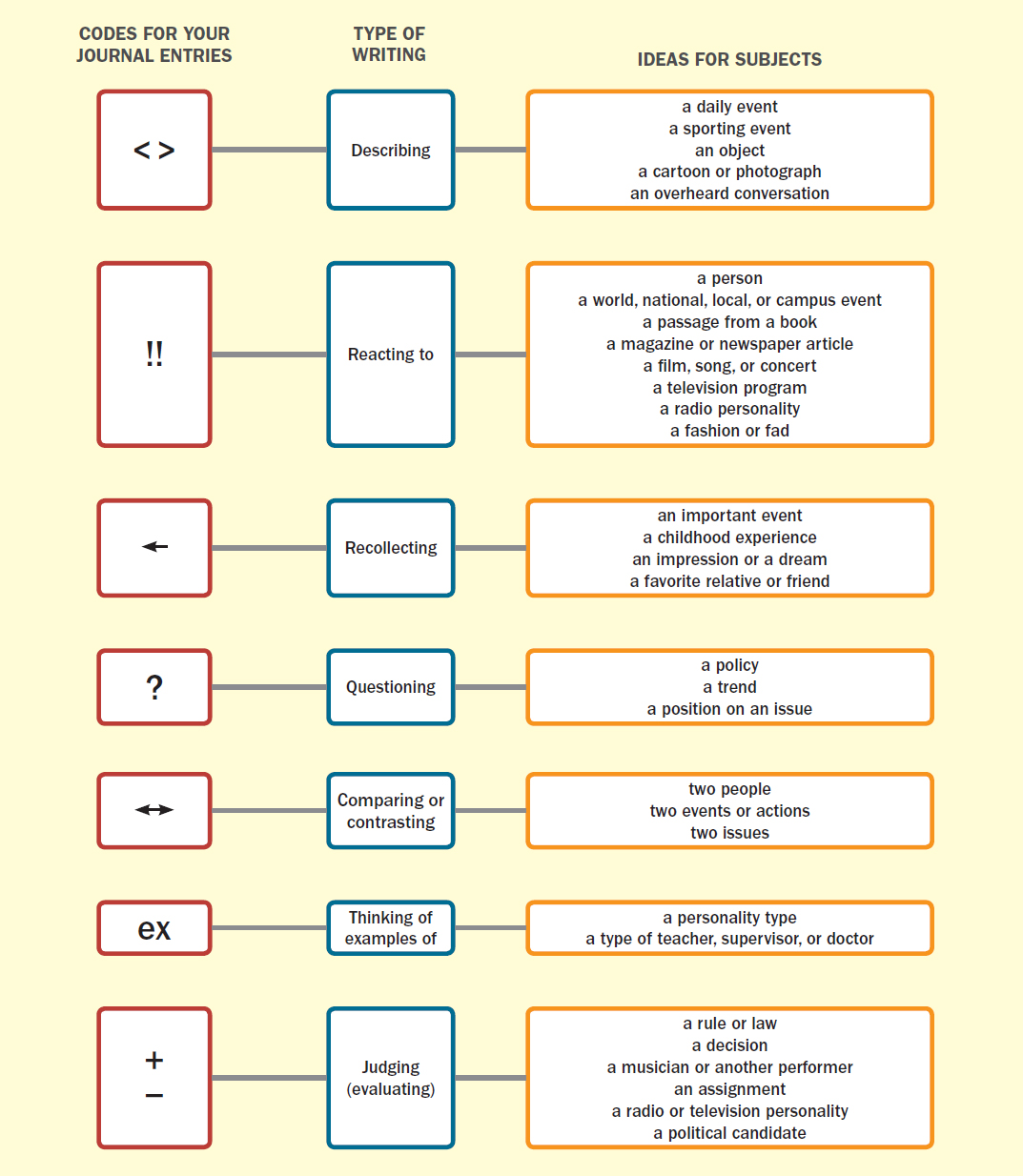DEVELOPING STRATEGIES FOR WRITING
Chapter 1 provided some general strategies for success in college, such as managing your time effectively, establishing a study area, studying more efficiently, and learning to manage stress. The section below covers strategies that will make a big difference in your writing.
START WITH A POSITIVE ATTITUDE
You have the ability to be a successful writer. To approach your writing course with a positive attitude and get the most out of it, use the following suggestions.
- Think of writing as a process. Writing is not a single act of getting words down on paper. It is a series of steps — planning, organizing, drafting, revising, and editing and proofreading — all of which can be done in whatever order makes sense and repeated as needed. (Most writers go back and forth among these steps.) (For more about the writing process, see see Chapters 6, 7, 8, 9, and 10.)
- Be patient. Writing is a skill that improves with practice. On some days, writing will be easier than on other days, but as you draft and revise your essays, your writing will improve in small ways that build on one another.
- Expect writing to take time, often more time than you planned. Build in extra time for completing writing assignments.
- Focus on learning. When you are given a writing or reading assignment, ask, “What can I learn from this task?” As you learn more about your own reading and writing processes, write down your observations. (See the section on journal writing.)
- Attend all classes, and use the support and guidance available to you outside class. Writing is a skill that is best learned through practice and feedback from readers, such as your instructor and classmates, so being prepared for class, attending regularly, and participating fully are crucial to your success. You can also get help outside class by talking to your instructor during office hours, visiting the writing center at your school, and taking advantage of the guidance in this book and online. (In Chapters 11, 12, 13, 14, 15, 16, 17, 18, 19, 21 and 25 of this book, Guided Writing Assignments and Revision Flowcharts provide tips, advice, and alternative ways of approaching assignments.)
USE YOUR COURSE SYLLABUS
The most important document you will receive in your first week of class is your course syllabus, a document that describes how the course operates and directs you through your class. A typical syllabus includes information on required texts, attendance and plagiarism policies, grading system, course objectives, weekly assignments or readings, due dates, and dates of exams. Here are some tips for using a syllabus to maximize your learning and your course grade.
- Read the syllabus carefully at the beginning of the course, and check it regularly so that you are prepared for class.
- Mark all deadlines on your calendar.
- Ask your instructor any questions you may have about the syllabus, course structure, deadlines, and expectations about course objectives. Note the answers on the syllabus or in your course notebook.
- Pay close attention to the course objectives, which outline what you are expected to learn in the course. Papers and exams will measure how well you meet them.
- Scan or copy each course syllabus. Keep one copy in the front of your notebook for easy reference during class or while you are studying; keep the other in a file folder at home or on your computer in case you lose your notebook.
A sample syllabus is shown in Figure 2.1.

USE THE RIGHT WRITING TOOLS
To be successful in college, you need the right learning tools. Your textbooks are essential, but you also need quick access to other sources of information.
If you have access to a computer, bookmark the following:
- a good online dictionary (such as Merriam-Webster Online),
- an online desk reference, such as www.refdesk.com, for factual information,
- the home page of your college library,
- DVDs or USB drives for backing up and transporting your work (unless you save your work in the “cloud”), and
- classmates’ and instructors’ email addresses.

Be sure you have each of the following tools handy in your writing and study area:
- a reliable collegiate dictionary, such as Merriam-Webster’s Collegiate Dictionary or Webster’s New World Dictionary, and
- a thesaurus (dictionary of synonyms), such as Roget’s Thesaurus.
USE THE COLLEGE WRITING CENTER
Many colleges have a writing center that offers help with any college writing assignment, not just assignments for your writing class. Writing centers generally provide trained student tutors and professional staff, who can help you do the following:
- understand an assignment,
- organize your ideas,
- revise a draft,
- use appropriate format and documentation, and
- understand errors on a graded paper.
However, do not expect them to write your paper or correct all of its errors. Some writing centers offer their tutorial services online or face-to-face, others only face-to-face; some offer walk-in help, and others require an appointment. When you visit the writing center, be sure to bring all of the following:
- your assignment,
- all drafts of your essay,
- any articles or essays to which the assignment refers, and
- paper and pen or pencil.
KEEP A WRITING JOURNAL
Keeping a writing journal will help you improve your writing by giving you a judgment-free place to practice. In your journal, you can experiment with voice, topics, or approaches to a topic; reflect on a reading selection or assignment; record your impressions and observations; or explore relationships among people or ideas. Here’s how to get started.
- Write in a spiral-bound notebook or create a computer file. Date each entry.
- Set aside five to ten minutes for journal writing each day. You don’t need a long block of time; instead, you can write while waiting for a bus or for class to start.
- Concentrate on capturing your ideas, not on being grammatically correct. Try to write correct sentences, but don’t focus on grammar and punctuation. (If you are not sure what to write about, consult Figure 2.2.)
- Reread your journal entries regularly. Rereading entries will bring back vivid snippets of the past for reflection and provide ideas and insights for upcoming assignments.

Writing Activity 1
Question
2Wv0d6IEytO6aKrkJfPuvdKWZIKd2hehBi8fzXpWyDPSr0SqIK6Pj7s/nZO1gqqVYZjCn1xerHPSN1/tpWchP1cWv8w1YjBFpxYbRGsxMy12hoDz1T6twD7bRvha8stMBsLI5ZjhrKU3kiN2EaRj4bkftHW+rJE7powVtdnSDKceQobb4UuqtoonR2aZPRG0hCg0i8gDIhXYL/zNlv8XNBWJvICUH/d24EPIufHO93E6I3cM7L28Kj0eEKKMSS7Vo/DqM8gh6/E6GP8+LL/lujykcpdp8SifNe6zY6jZ4KmC7GzSZia9QOzL4b5Yw2qKExCQh2aj01LUzIhL8Flw5g==GET THE MOST OUT OF WRITING CONFERENCES
Many writing instructors require writing conferences with individual students to discuss the student’s work and his or her progress in the course. If the conferences are optional, be sure to schedule one.
The following tips will help you get the most out of a writing conference.
- Reread recently returned papers ahead of time, so that your instructor’s comments are fresh in your mind. Review your notes from any previous conferences.
- Arrive on time or a few minutes early, and bring copies of the essay you are currently working on, as well as previously graded papers. Have these materials in hand, not buried in your backpack, when your conference begins.
- Allow your instructor to set the agenda, but come prepared with questions.
- Take notes either during or immediately after the conference. Include the comments and suggestions that your instructor offered. You might also write a journal entry that summarizes the conference.
- Revise the draft essay you and your instructor discussed as soon as possible, while your instructor’s suggestions are still fresh in your mind.